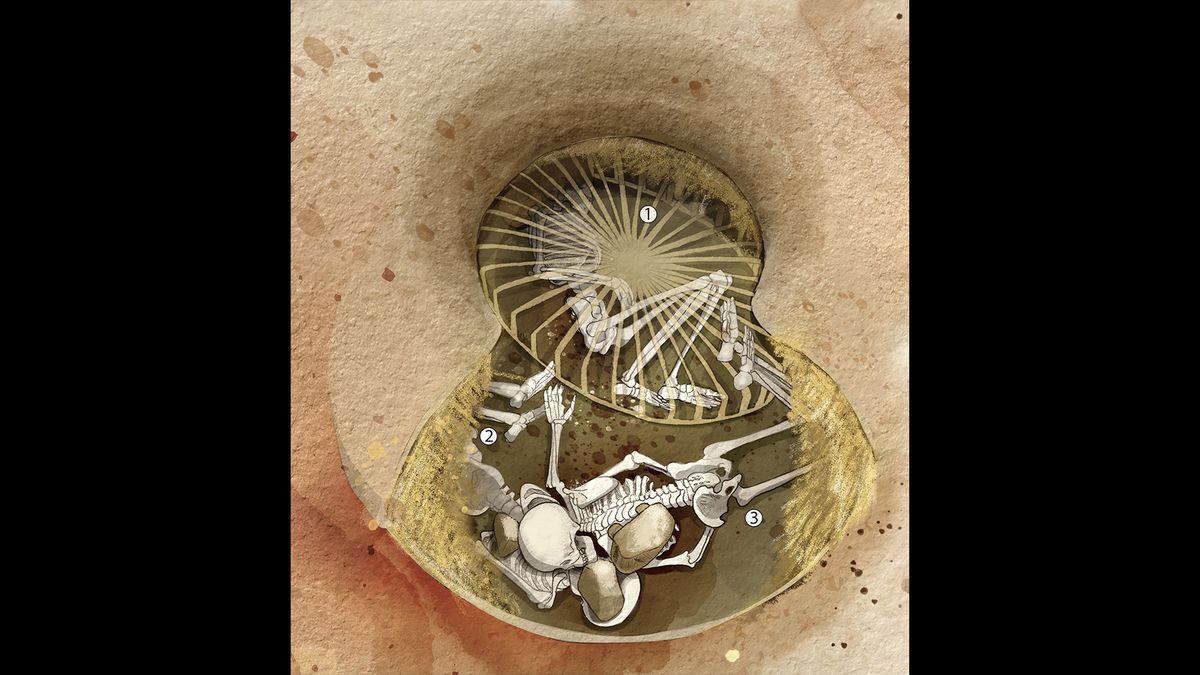The murder of sacrificial victims by “incaprettamento” — tying their neck to their legs bent behind their back, so that they effectively strangled themselves — seems to have been a tradition across much of Neolithic Europe, with a new study identifying more than a dozen such murders over more than 2,000 years.
The study comes after a reassessment of an ancient tomb that was discovered more than 20 years ago at Saint-Paul-Trois-Châteaux near Avignon, in southern France. The tomb mimics a silo, or pit where grain was stored, and it held the remains of three women who were buried there about 5,500 years ago.
The new study, published Wednesday (April 10) in the journal Science Advances, reinterprets the positions of two of the skeletons and suggests the individuals were deliberately killed — first by tying them up in the manner called “incaprettamento” and then by burying them while they were still alive, perhaps for an agricultural ritual.
Fucking hell.
incaprettamento: https://www.alessandrolibrio.com/wp-content/uploads/2017/04/IMG_0337r-768x512.jpg but with a cord to the neck
There is a cord in that pic but it’s not tight… for obvious reasons.
“Tied up” doesn’t begin to describe this torture.



